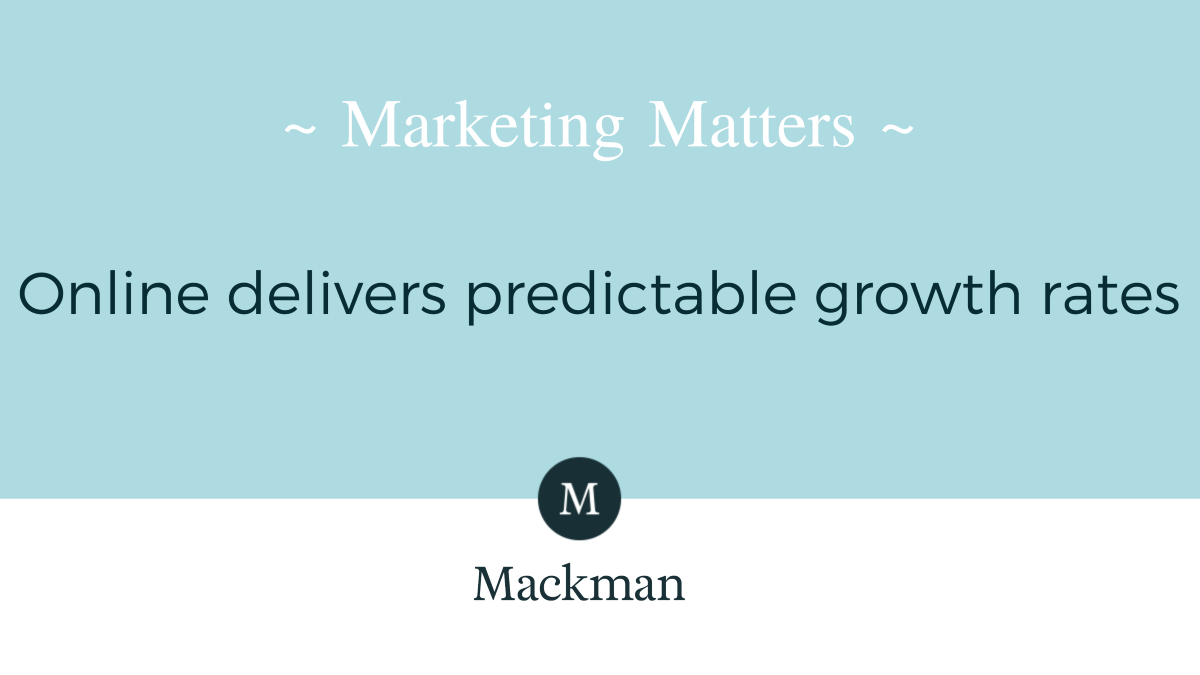In last month’s Marketing Matters article, I used the example of one of the UK’s most successful contemporary companies to suggest that business owners reconsider their use of online marketing and social media. I explained how so many SMEs that we encounter simply throw money at social media with little idea of their objectives or the outcomes achieved.
This month, in the interest of balance, I want to make the opposite point! And before any friends reach for their phones to text and accuse me of being Mr Flip-Flop, this is completely consistent with what I said last month. I clearly made the point that digital and social are essential for some companies, but not all; and that both categories need to understand and define their objectives before committing investment and expecting a healthy return via online marketing.
Case study
The catalyst for this month’s advice is a wonderful client with which we are planning their next phase of growth. This is a genuine global market leader in a premium sector which they supply from East Anglia. Having established their reputation over the past 50 years or so, they supply retail and trade users across all five continents, and their name is all but the ‘generic term’ in their sector.
In recent years, the company has sensibly sought to leverage their brand equity, manufacturing excellence and logistical infrastructure by diversifying into a very different market, but which uses very similar products to those produced for their established sector. Whilst progress has been made given their exceptional products and service, the research project we have conducted for them has revealed a significant under-performance in terms of their online marketing and its significant impact on their lead generation and overall sales and profit.
Evidence
The intelligence gathered evidences:
- Despite up to 10,000 searches for one of the company’s leading products each month, the company languishes on the fourth page of Google and is therefore missing out on the potential leads generated via this prominent search engine.
- Potential customers are highly unlikely to discover the company unless they specifically search for it by name. Naturally this severely limits one of the internet’s primary benefits, to promote their company to new prospects worldwide, all day, every day.
- Similarly, because the current visitors are invariably people who already know the company, only 0.03pc of users enquire using the website, and even fewer make a purchase on the online shop. This is creating a snowball effect and the site is achieving significantly fewer clicks and impressions year-on-year.
And what’s worse? The company has been paying out hundreds of pounds each month to an agency who has claimed to be optimising their site and SEO…
Conclusion
As with most business decisions, it is possible for company leaders to either apply false economy to their online marketing by spending so little it is not worthwhile, or to invest reasonable sums while not understanding what level of benefit they should gain in return. Yet there is no need for either of these scenarios – because, done properly, online marketing has reached a point where it represents a genuine sea-change in marketing investment. This is because reputable agencies are able to set your online strategy and campaigns to provide every imaginable metric to both measure success and continually refine and improve. Never before has the concept of ‘return on investment’ been more visible and relevant.
Whether using online marketing to build and reinforce your brand’s presence and recall, or as a relentless lead generation machine, you should be able to use these mechanisms within your marketing mix to bake predictable, deliverable growth into your sales and business plans.
Paul Mackman, Company Director
Contact Mackman today to get started on your online marketing project – we would be pleased to discuss your requirements.
